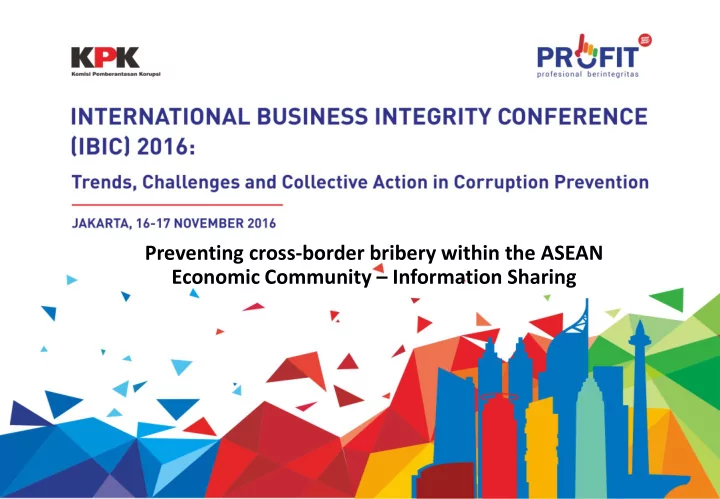

Preventing cross-border bribery within the ASEAN Economic Community – Information Sharing
AIM • Introduction to the practical aspects of intelligence and information sharing through formal (bilateral Mutual Legal Assistance agreements and international government organisations) and informal (police-to- police cooperation) mechanism in support of corruption prevention and detection. • The aim of this session is to encourage you to share information and intelligence on corrruption across and between sectors.
Detecting corruption • The victims of corruption are the government and the citizens; • In most cases the victims are never aware of the offending; • Often when the government is made aware of the offending, the recipient of the bribes is in a position to prevent or frustrate any potential investigation; • The vast majority of contracts facilitated through foreign corruption are legitimate contracts.; and • When a bribe is paid from one entity to another there may be no indicators of foreign bribery for local authorities to detect.
Detecting corruption • The Media; • Self reporting; and • Whistleblowing.
Public/ Private Sector Cooperation
Domestic challanges to information sharing • When it comes to sharing intelligence and information on corruption domesticaly or across the region there are no shortage of challanges. • Many ASEAN member states experience problems coordinating the various roles of state and sub-state enforcement stakeholders. • One possible approach to resolving this challenge is the establishment of national level multi-department taskforces.
Bi and Multilateral Intelligence and Information Sharing • Mutual Legal Assistance; • Police-to-Police Cooperation; • Offshore financial centres.
Conclusion ‘share early, share often, share all’
Recommend
More recommend